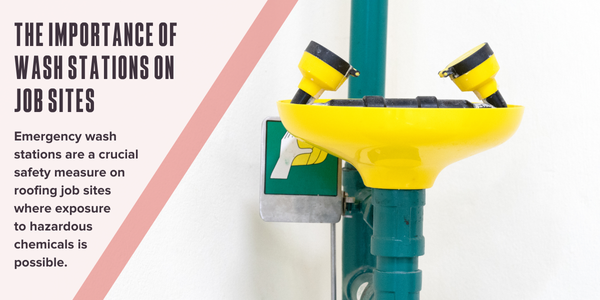UP TO THE MINUTE
Skills for Safety – Part One

By John Kenney, Cotney Consulting Group.
If you are a safety leader, here are the skills you must know in order to perform your job effectively.
Safety managers, project managers, and on-site supervising personnel are the safety leaders on your project sites. They play a vital role in developing and implementing safety strategies at the project level to ensure they are aligned with your company's overall safety culture and goals.
To perform this role successfully and effectively, they require various skills. In this series, we will focus on critical skills that your project management personnel need to lead safety management on your projects.
The commitment and participation of this management personnel are key factors for successfully implementing safety programs. Promoting better safety requires effective supervisory behavior to promote superior safety practices and better performance results when site managers and supervisors engage workers in regular on-site safety talks. They have an important and ongoing safety leadership role and responsibility for performing safety management tasks in leading safety implementation on your projects.
There are four sets of skills relevant to safety that we are going to discuss. The first is conceptual:
Conceptual skill
Commonly, conceptual skill is the ability to see an enterprise as a whole. In construction and roofing projects, conceptual skill is crucial for viewing the project from a big-picture perspective. You need to understand the interconnecting relationships among different project components and collaborators by envisioning how the project affects the surrounding environment. Due to the complexity of roofing projects, conceptual skill is crucial in ensuring that the individual systems function as an integrated whole. This skill is also helpful in viewing one project as part of many interrelated projects within your organization.
Safety management, project management, and supervisory personnel need conceptual skills to recognize the impacts and essential need of best safety practices for your workers, their families, your company, and the achievement of project objectives. This skill provides an overall view and understanding of the roles of safety in a roofing project, which helps project management personnel understand that safety is an integral part of the project. When the importance of safety is perceived, they will be motivated to act to advance safety.
What are the attributes of conceptual skill?
- Visualizing - The ability to identify critical aspects of the project and their interrelationship.
- Decision-making and prioritizing - The ability to prioritize and make decisions based on available alternatives and achieve overall organizational and project objectives.
- Problem diagnosing - The ability to identify the root cause of problems.
- Systemic problem-solving – The ability to consider the impacts of the solutions on the organization and a project as a whole.
- Planning - The ability to define objectives and decide on the tasks and resources needed to accomplish them.
- Organizing - The ability to distribute resources and decide on the roles and responsibilities of personnel.
- Goal orientated - The ability to constantly fix on set goals in planning, organizing, making decisions, performing tasks, and solving problems.
Human skill
This is the ability to work with and through other people, which is crucial in a roofing business due to the involvement of various parties and the labor-intensive nature of work. This is especially true regarding safety, where management personnel depends on others to perform the job safely.
Three components of human skill are essential for their contribution to safety management; emotional intelligence, interpersonal skill and leadership.
Emotional intelligence is the capacity to recognize our feelings and those of others, motivate ourselves, and manage emotions well in ourselves and our relationships. This component is associated with superior performance in different industries, including construction and roofing.
There are four aspects of emotional intelligence that are important to safety management:
- Self-awareness - The ability to accurately perceive one's own emotions and remain aware of them as they happen.
- Self-management - The ability to use emotional awareness to stay flexible and positively conduct your behavior.
- Social awareness - The ability to accurately recognize emotions in others and understand what they think and feel.
- Relationship management - The ability to use your emotional awareness and the emotions of others to successfully manage interactions.
The self-management and relationship management dimensions of emotional intelligence are essential regarding safety management implementation. Self-management can be considered as a form of self-leadership where individuals motivate themselves to achieve their goals.
Your project management personnel must include safety as one of their values and goals in their self-management practice. This will influence their decisions and behavior, motivating them to focus on safety during setbacks and difficulties.
Additionally, relationship management is needed for them to relate with others, enabling project management personnel to make the most out of every interaction. This is important because your management personnel can't implement safety management alone.
Finally, they need to inspire the workers by articulating a clear vision and showing the moral values of safety to achieve safety goals. This creates team satisfaction while promoting positive awareness and attitudes towards safety, improving safety performance and culture.
Stay tuned for part two!
Learn more about Cotney Consulting Group in their directory or visit www.cotneyconsulting.com.
About John Kenney
John Kenney is the Chief Executive Officer at Cotney Consulting Group. Prior to starting Cotney, John had 45 years of experience in the construction industry. John began his career by working as a roofing apprentice at a family business in the Northeast. Because of his skill and hard work, he progressed from roofing laborer to foreman, estimator, chief estimator, Vice President, and Chief Operating Officer with his various companies. John has worked for multiple Top 100 Roofing Contractors and is intimately familiar with all aspects of roofing production, estimating, and operations. In his last role, John was responsible for the daily operations and performance of a large commercial roofing contractor. During his tenure, John ran business units associated with delivering excellent workmanship and unparalleled customer service while ensuring healthy net profits for his company.




















Comments
Leave a Reply
Have an account? Login to leave a comment!
Sign In